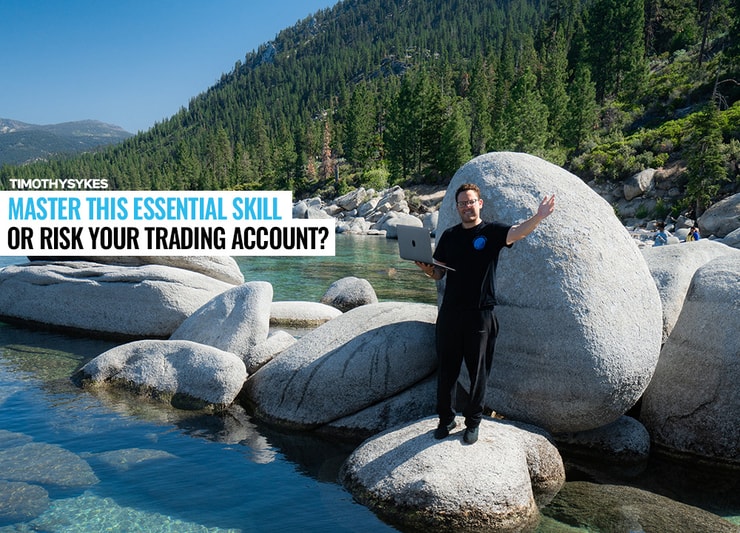As someone who has defied the odds in trading, making over $7.4M in trading profits and mentoring over 30 students who have gone on to become millionaire traders.
Let me tell you something…
Without mastering this crucial skill, you’re as good as toast in this game.
Unfortunately, most people dive headfirst into trading without realizing this skill’s gravity until it’s too late.
And when they finally wake up, their trading account is almost wiped out, and they’re in a pit of despair.
So if you’re sitting there studying patterns, learning about catalysts, and searching for the perfect risk vs. reward strategies…STOP right now.
Because let me tell you, none of that matters if you don’t have this skill down pat.
This is the holy grail, the game-changer, the one thing you MUST master first if you want any hope of succeeding in trading.
How I’ve Achieved +20 Years of Trading Excellence

My success as a trader has nothing to do with my IQ or innate abilities.
I’m no math prodigy and wasn’t born with a crystal ball.
You don’t need to be a genius to succeed in trading.
What sets me apart from the pack and why I’ve been able to mentor so many students into millionaires is because of the principles I live and breathe.
My number one rule, the golden ticket to success in trading, is to CUT LOSSES QUICKLY. It may sound like a no-brainer, but its the most important rule you’ll ever learn.
Finishing this week with a bang! +830 on $NQ and +170 on $NFLX
Taking singles and cutting losses quickly PAYS!
$3600 in profits on the week and finally back on track to that 10k@timothysykes @StocksToTrade @profitly— €hrîstîan (@GreekBoyTrades) March 17, 2023
Too many traders jump into the game with stars in their eyes, dazzled by the potential profits. They start learning all the fancy strategies and tactics before even considering protecting their capital.
But let me tell you, in your first year as a trader, protecting your capital is EVERYTHING.
It takes time to figure out what works and what doesn’t. And the best way to do that is by learning as cheaply as possible…by cutting your losses quickly.
If you take anything away from this blog post today, it’s this:
Focus on protecting your capital and cutting those losses…and the rest will fall into place.
My top students know this, and that’s how they’ve thrived in this volatile market.
Even with my poor trading recently, I'm not down that much $ because I utilize https://t.co/0HhPp6CC1v as it's important to remember that you do NOT have to overstay in ANY position and potentially allows small mistakes to EVER turn into potential disasters. Stay Safe Everyone!
— Timothy Sykes (@timothysykes) March 17, 2023
Staying True To The #1 Rule

You can’t hit a target if you don’t know what it is.
Too many traders focus on how much they will make…they fail to think about what happens if they’re wrong.
Before I enter a trade, I have two targets.
- The price level I want to start taking profits
- The price level I want to get out if I think I’m wrong
Now, in terms of risk management, I think I’m conservative. I will often get out of a trade very quickly if it’s not doing what I want it to do immediately.
But I’m okay with that because I’m protecting my capital.
I have not traded well in the month of March. However, I am just one or two good trades away from being profitable on the month. And that’s because, despite my bad trading, I’ve followed my number one rule.
Yes…losing sucks.
But a small loss is much better than climbing out of a massive hole.
What else?
Focus on trading GREAT setups.
If you’re a relatively new trader, then you probably don’t know what those look like, which is more reason for you to cut losses quickly.
But if you’ve been trading for a few months, you should know your best setups and trades.
Focus on those.
You’re more likely to get emotional when you enter trades that don’t fit your criteria.
For example, I can’t tell you how many traders are style-drifting and trying to buy dips in regional banks.
“It’s down too much” isn’t a reason to buy.
Just look what happened to SVB Financial Group (SIVB)…it went from $270 all the way down to the $30s before halting in just three days…
More Breaking News
- Vale S.A. Stock Soars as Goldman Sachs Raises Price Target
- Upstream Bio Faces New Strategic Challenges Amid Latest Developments
- Bombardier Expands U.S Presence Amid Aircraft Service Boost
- Key Takeaways
Emotions will surely interfere with your decision-making when you’re not trading your best setups.
Bottom Line

The name of the game for newbie traders is survival.
You want to develop your skills while studying and learning.
Keep your losses small and cut your losers quickly.
Some of the strategies I trade can bring 10% to 30% returns in a few hours.
Of course, they don’t all work out like that…But if I stick to those A+ setups…and take small losses…then I will likely make money over time.
It’s how I made over $130K last year in one of the worst markets we’ve seen in decades.
And it’s the main reason why so many of my students have gone on to make millions.


Leave a reply